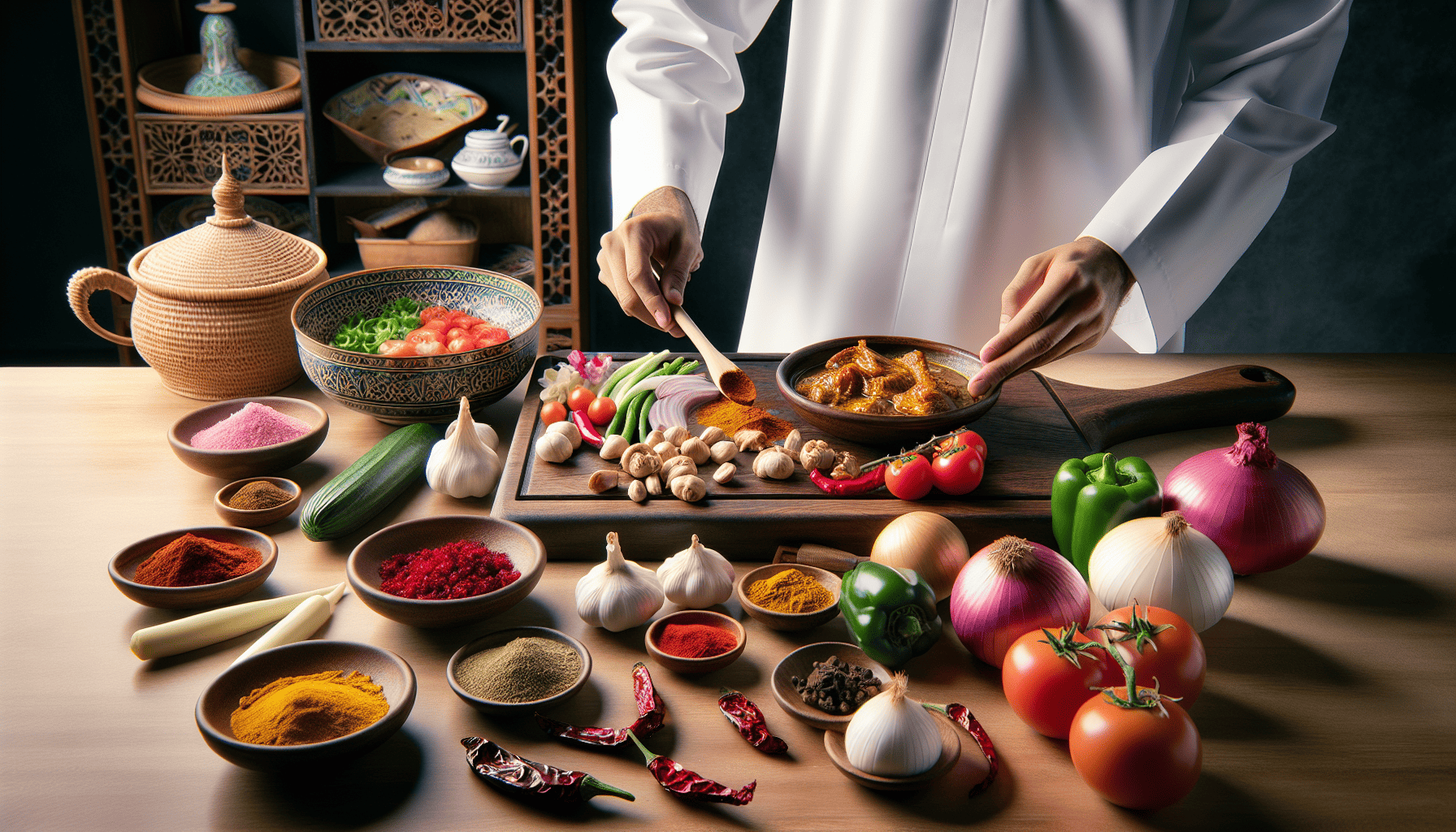Nestled in the heart of the Arabian Peninsula, the United Arab Emirates boasts a culinary history as vibrant and diverse as its rapidly evolving landscape. From the azure waters of the Gulf to the vast, sun-kissed dunes, the UAE's rich tapestry of flavors reflects its natural bounty and its role as a crossroads for cultures over countless generations. At Yun Byte Bodega, we invite you to embark on a sensory journey through this unique culinary heritage, delving into the stories behind the traditional recipes and age-old cooking techniques that form the backbone of Emirati cuisine.
The culinary narrative of the UAE is a blend of influences from neighboring Middle Eastern countries, as well as India, Persia, and beyond. This melting pot of cultures is mirrored in the use of spices, cooking methods, and ingredient combinations found throughout the region. At the heart of these recipes is hospitality, a cornerstone of Emirati culture, where food is a rich symbol of generosity and community.
One of the most iconic dishes you'll discover is Al Machboos, a spiced rice dish traditionally prepared with chicken, lamb, or fish. This beloved recipe showcases the UAE's knack for marrying complex flavors: Basmati rice is simmered with a blend of sautéed onions, garlic, dried lime, saffron, and an aromatic medley of spices like cinnamon, cardamom, and cumin. The result is a fragrant and deeply satisfying meal that remains a staple in Emirati households during both everyday meals and festive occasions.
A journey through Emirati cuisine would be incomplete without savoring Harees, a fascinating dish that dates back centuries. Particularly prevalent during Ramadan, Harees is made by slow-cooking wheat and meat to create a creamy porridge-like consistency. The simplicity of this dish is deceptive, as its comforting texture and subtle seasoning render it both humble and wholesome. Traditionally, Harees is a communal affair, cooked in large pots to feed families and neighbors, emphasizing the spirit of sharing and togetherness.
As you delve deeper into Emirati culinary heritage, you'll come across the ubiquitous Luqaimat. These small, sweet dumplings are golden brown and drizzled with date syrup or honey, offering a delightful, crispy texture with a soft, fluffy interior. Usually served as a dessert during celebrations or on the streets during festivals, Luqaimat are a testament to the Emirati love for hospitality and creating shared moments of joy through food.
In exploring the cooking techniques that define Emirati cuisine, one cannot overlook the traditional methods such as Tanoor and Madfoon. Tanoor is akin to an outdoor oven, where bread, meats, and fish develop a unique smokiness and depth of flavor from the wood-fired clay structure. Madfoon, on the other hand, employs a pit-cooking technique: marinated meat is buried in a hole lined with hot coals and stones, then covered, allowing the dish to cook slowly to tender perfection over several hours.
At Yun Byte Bodega, we aim to preserve and celebrate these age-old practices, providing a gateway to the UAE's culinary heritage while adapting these historical flavors for contemporary palates. Our curated menu is a homage to traditional Emirati dishes, thoughtfully crafted to honor their origins while inviting guests to become part of a living culinary tradition.
As you explore the fusion of history and gastronomy within the UAE’s ever-evolving culinary scene, it becomes clear that the true essence of Emirati cuisine lies in its ability to weave a shared narrative of culture, family, and innovation. Through these time-honored recipes and techniques, the UAE continues to tell its story—a harmonious blend of past and present, guided by the enduring values of hospitality and celebration.
